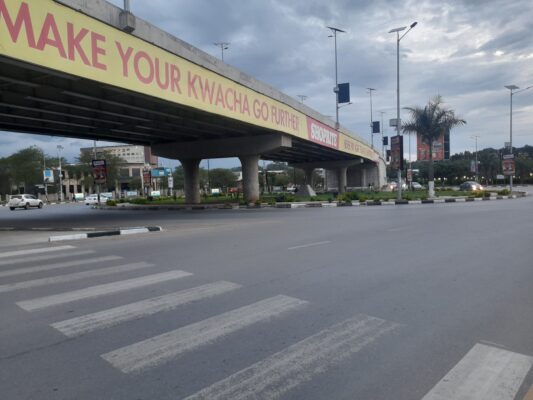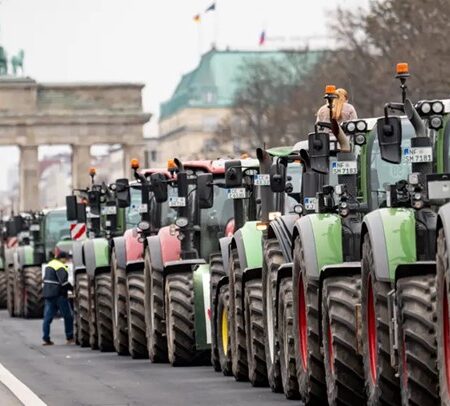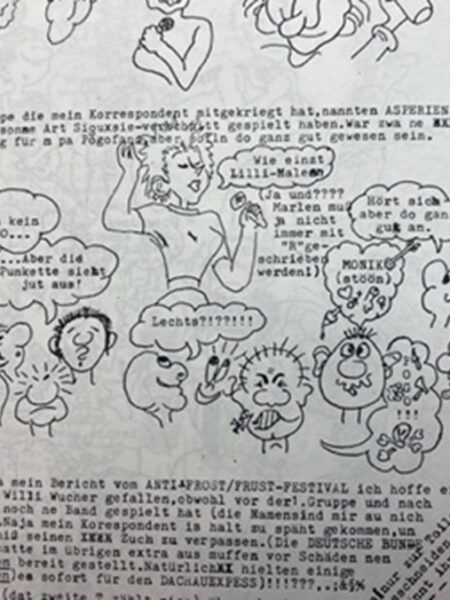

This article aims to revisit one of the most significant moments in the recent history of Zambia: its return to a multi-party dispensation in 1991. Rather than focusing on the voices of historians, political scientists, and other scholars, I wish to engage with the recollections of ordinary citizens who experienced or participated in the transition, and what it meant to them then and now. Part 1 discusses alternative scholarly explanations of the wave of democratisation experienced by sub-Saharan Africa from about 1990. Part 2 tests these models by confronting them with popular perceptions and memories of regime change in Zambia. The findings of the exercise are that economic, rather than international, aspects are likely to have had the most significant impact on the choices and behaviour of common Zambian citizens in the decision to support the ouster of the then-ruling party, UNIP (United National Independence Party), and the end of the one-party regime.
I
During the last decade of the twentieth century, the overwhelming majority of sub-Saharan African countries abandoned one-partyism in favour of a return to that multi-party democratic system that had been characteristic of the immediate post-independence era. Between 1988 and 1999, the number of multi-party constitutions in sub-Saharan Africa rose from seven to as many as 43.1 Viewed from the outside, this wave of democratisation appeared to amount to a revolutionary transformation of the political landscape of the continent.
It is precisely this transformation that Bratton and van de Walle set about explaining in their 1997 volume entitled Democratic Experiments in Africa. 2 The explanatory model the two American political scientists put forward is based on the idea that the workings of the post-colonial African state influenced patterns of regime change in the early 1990s to a much greater extent than did international pressures or the end of the Cold War. Bratton and van de Walle present the post-colonial state as patrimonial (or neo-patrimonial) and clientelistic–based, that is, on the systematic, vertical distribution of state or party resources to generate and consolidate political support and loyalty.
Alex Thomson agrees that clientelism has permeated African post-colonial governance “from top to bottom.” This was partly because, in an environment where authoritarian rulers dominated the political field and independent political activity was banned (as it was in Zambia under Kenneth Kaunda’s rule, from 1972), patron-client relationships represented a limited avenue of political exchange (it tended to be the only left avenue through which some groups of people or ethnic groups were able to get a form of representation and negotiation with authoritarian rulers. in turn, the rulers relied on the support of these groups for legitimacy and sustained power.)3 However, scholars generally agree that clientelistic systems promote factionalism and tribalism as well as a host of other problems. In the Zambian context, for instance, it has been suggested by political activist Mbita Chitala that the divisions within UNIP were caused by tensions revolving around the “sharing of the spoils”, which was “a central issue.” 4
When applied to the sphere of governance, moreover, clientelistic systems contain within themselves the germ of their destruction because they rely too heavily on material provisions. In the early 1990s, African patrimonial regimes were the victims of their internal contradictions. The principal contradiction faced by the post-colonial African state was that, in a context of enduring economic crisis, such as that experienced by tropical Africa from the early 1970s, clientelistic practices are not sustainable in the long-run. State resources are gradually depleted to maintain political support. Thus, from the 1980s, African governments, victims of their own inefficiency and externally-imposed Structural Adjustment Programmes, have suffered from diminishing resources and the related reduction of their ability to “oil” patron-client mechanisms. This, in turn, ushered in a crisis of legitimacy and authority that paved the way for the consolidation of opposition movements and, eventually, the return to multipartyism.
According to Bratton and van de Walle, then, the economic and legitimacy crises experienced by African one-party states were a key factor behind the 1990s democratisation movements. Other scholars, however, have foregrounded the significance of international factors. The turning point, of course, was the end of the Cold War and the East-West confrontation. The end of the Cold War meant that Western powers and International Financial Institutions (most notably, the World Bank and the International Monetary Fund) could now afford to be more selective, making the disbursement of loans and the distribution of aid conditional upon a modicum of democratic reforms being implemented.
Thomson sums up the new international dynamics ushered in by the end of the Cold War in the following terms.
Soviet clients [in Africa] now had no external patron to turn to, while allies of the United States received less unconditional support because Washington’s strategic interests on the continent had diminished dramatically […] international agencies still interested in providing aid to Africa only did so with significant conditions attached. […]. Assistance would be suspended or resumed as a direct consequence of a regime’s human rights records and its commitment to democratic reforms. 5
II
Mbita Chitatala reminds us that, after independence in 1964, Zambia inherited a multiparty democratic constitution from its British colonial masters. But this multiparty constitution did not last. By 1972, the ruling power, Kaunda’s UNIP realized that the workings of democracy, if left unchecked, would soon cost it its power, on account of its failure to deliver the so-called “fruits of independence” and the growing strength of organized opposition.6 Chitala, who would go on to serve as deputy national secretary of the Movement for Multiparty Democracy (MMD), the party that ousted UNIP from power in 1991, blamed this development on an ‘‘insatiable lust to remain in power at all costs’’.[ 7. Chitala, Not Yet Democracy, p.1] By the end of the same year, 1972, UNIP’s assault on opposition parties was complete (the ANC, banned from selected districts like Mumbwa, the Congress’ stronghold, in 1969 and the UPP, fully banned in 1972 and its members and leaders arrested. Finally, in 1973, all opposition parties were banned except UNIP by Kunda)7, and Zambia had been turned into a de jure presidential one-party state in which only Kaunda’s UNIP was allowed to operate.
Still, Zambia was one of the first sub-Saharan African countries to experience a successful transition from a one-party state to a multi-party democracy in 1991, when the rule of UNIP was brought to an end by the electoral victory of Frederick Chiluba’s MMD. Chiluba became Zambia’s second president. Because of this, Zambia’s transition to democracy has attracted significant scholarly attention from political scientists and historians. However, my reading of the relevant Zambianist literature suggests that most academics have adopted a top-down perspective when exploring the dynamics of Zambia’s return to democratisation.8 In other words, scholars have tended to concentrate on the manoeuvres and interests of the ruling elite, both those who opposed democratization and those who favoured it. This has also meant that the same scholars have privileged written sources (such as manifestoes emanating from party headquarters or the pronouncements of political leaders) over oral sources. Therefore, what is missing from the literature I have focused on is the voice of the common people. How did ordinary Zambians perceive the end of one-party rule? How exactly did the contribute to it? What did they truly expect from the new dispensation?
These are the overarching questions that shaped my research project. To begin to address these questions I resorted to oral history, interviewing five men from various Zambian ethnic groups who witnessed and remembered the end of one-party rule and who belonged to different social classes. One was Mr. Lencho, a pastor at a Seventh-day Adventist church, another was Professor Yoram Mumba, of the University of Zambia, Lusaka, the third was Nathan Nkausu, a security guard at the Italian Consulate in Lusaka, the fourth interviewee, Mr. Simon Stimela, has worked as a taxi driver in Lusaka for twenty-two years, while the last, Mr Nkamu Nkamu, a former journalist, is now a farmer. Two of my interviewees were from Kabwe, a comparatively quiet constituency in terms of political activity, and three from Lusaka, Zambia’s capital, a much more politicized environment.
All of my interviewees placed a very strong emphasis on the seriousness of the economic crisis that Zambians were confronted with in the years leading up to the political transition. While they may not have understood the crisis as a demonstration of the failure of UNIP policies and clientelistic governance, or as the result of the Structural Adjustment Programmes imposed on the country by donors and international financial institutions, they certainly experienced its adverse consequences on the quality of their lives. Thus, most interviewees remember vividly the shortages of foodstuffs and other consumer goods which characterized the twilight of Kaunda’s presidency. In the late 1980s, for instance, Mr. Nkamu was a Lusaka-based journalist. At the time – he recalls – people started “queuing up for mealie meal [and] bread” at 3 am. The memory of the privileges enjoyed by select few is still a source of anger.
One time, he remembers,
we were traveling from Chipata [a town in the east of the country] to Lusaka in 1990. There was a very popular place, a lodge called Ka Cholola […]. We had to bribe someone just to buy a crate of beer. It had become so bad that only a few privileged – the so-called exclusive executives – would buy commodities like sugar [and] washing soap […]. I remember one time when we were in the village we had to soak the bark of a tree overnight in water, then wash our clothes.9
Much of the popular appeal of the MMD stemmed from the promise of bringing this increasingly untenable situation to an end by liberalizing the country’s economy. A popular perspective on economic liberalization is provided by Pastor Lencho, who put it in the following terms: “For example, the idea of street vendors in Lusaka and other cities begun with Chiluba. During Kaunda people were not allowed to sell just anything in the streets. So even the uneducated as well were interested in voting for MMD for the opportunity to be a ‘shop on your own’.”10 According to veteran Zambian politician John M. Mwanakatwe, one of the reasons that had led to “the stagnation of the rural subsistence sector” under UNIP were policies that suppressed agriculture producer prices, with a view to appeasing urban dwellers by keeping food prices down.11 Pastor Lencho, a farmer’s son and a farmer himself, only wanted freedom to dictate what happened to his produce on the marketplace.
For farmers, he promised us the opportunity to set our own prices on any crop, but most importantly, to sell wherever you want.12
The 1973 one-party constitution conferred wide executive powers to the president, who – in the words of Mwanakatwe – was ‘‘not obliged to follow the advice tendered by any other person or authority.’’13 This explains another common theme running through the interviews, that is, that Kaunda, for all his initial good intentions, had overstayed his welcome and had turned himself, in the words of Mr. Nkamu, into “a village dictator, or headman, who expected everyone to say yes”.14 Going hand in hand with this is a common awareness of the value of “freedom”, intended primarily as freedom of speech. As security guard Nathan put it, in Kaunda’s days, “there was no freedom as we have now, freedom of speech was not there back then […] the things we see today, where you can say the government is not doing okay, then you could not do that.” 15 Pastor Lencho expressed this same view, arguing that ‘‘People had an interest to change to a multiparty government where they could talk freely.’’16
According to Macola, the 1980s in Zambia were characterized by ‘‘political authoritarianism, increasing economic mismanagement and corruption, and a sharp drop in living standards.’’17 All the interviewees echoed this point in their own way. ‘‘Many people”, Prof. Mumba explains, “were using the slogan ‘the hour has come’, meaning to get rid of Kaunda. And they associated the MMD with the introduction of democracy and UNIP was associated with non-democratic practices.’’18 Prof Mumba he also referred to increasing food riots, and the role of students in pushing back a government they deemed dictatorial and corrupt. Even Mr. Stimela, who was very respectful of Kaunda and an admirer of his regime, mildly admitted to this problem when he said, ‘‘he had been in power too long.’’19
Interestingly, only one interviewee, the university professor, highlighted the relevance of international factors in shaping the pace of regime change in Zambia. “As you know”, he explained, “there was the collapse of socialism in eastern Europe, the Soviet Union collapsed. So the international atmosphere was not for socialism anymore […] the one party system was associated, globally, as a system that has no place any more in political systems.”20 The professor is here echoing one of the two scholarly views described in section 1: the need to locate the African democratization movement, in general, and the rise of the Zambian MMD, in particular, in the context of the end of the Cold War. The fact that four of my five interviewees did not see fit to highlight this connection suggests a certain lack of fit between popular and scholarly understandings of the Zambian democratization movement.
***
If it were not for the economic crisis that characterized the 1980s, along with the social anxieties and pressures that accompanied this crisis, Kaunda and his party may well have clung to power for much longer. Granted, as shown by Macola, currents of underground opposition to UNIP survived throughout the one-party regime, but their reach was limited.21 What my interviews suggest is that the average Zambian paid relatively little attention to matters of ideology (no interviewee, for instance, had anything to say about “Humanism”, Kaunda’s brand of African socialism). What truly mattered was to make ends meet. This is why it was only when the realities of economic decline began to bite that disaffection with the one-party regime spread widely among all classes of the population, sparking a powerful wave of rejection. While further research is needed, I would argue tentatively that these conclusions are likely to hold true for the rest of sub-Saharan Africa, since calls for regime change coincided with economic crises across the sub-continent. In my view, it was such crises that brought home to most people the untenability of political systems where leaders were unaccountable and unchallengeable.
- M. Bratton and N. van de Walle, Democratic Experiments in Africa: Regime Transition in Comparative Perspective (Cambridge: Cambridge University Press, 1997)
- M. Bratton and N. van de Walle, Democratic Experiments in Africa: Regime Transition in Comparative Perspective (Cambridge: Cambridge University Press, 1997)
- A. Thomson, An Introduction to African Politics: Fourth Edition (Abingdon: Routledge, 2106), pp. 122-123
- Mbita C. Chitala, Not Yet Democracy: The Transition of the Twin Process of Political and Economic Reform in Zambia (1991-2001) (Lusaka: Zambia Research Foundation, 2002), p. 2
- Thomson, An Introduction to African Politics, pp. 252-253,
- G. Macola, Liberal Nationalism in Central Africa: A Biography of Harry Mwaanga Nkumbula (New York: Palgrave Macmillan, 2010), chapters 5-6
- Macola, Liberal Nationalism in Central Africa: A Biography of Harry Mwaanga Nkumbula (New York: Palgrave Macmillan, 2010), p. 137-139
- See, for instance, Macola, Liberal Nationalism in Central Africa, and L. Rakner Political and Economic Liberalisation in Zambia, 1991-2001 (Uppsala: Nordiska Afrikainstitutet, 2003).
- Author’s interview with Mr Nkamu Nkamu, Kabwe rural, 30 June 2024
- Author’s interview with Pastor Lencho, Kabwe rural, 2 July 2024.
- J.M. Mwanakatwe, End of Kaunda Era (Lusaka: Multimedia Publications, 1994), pp. 113-114.
- Author’s interview with Pastor Lencho.
- Mwanakatwe, End of Kaunda Era, p. 85
- Author’s interview with Mr Nkamu Nkamu
- Author’s interview with Mr. Nathan Nkausu, Lusaka, 24 June 2024.
- Author’s interview with Pastor Lencho.
- Macola, Liberal Nationalism in Central Africa, p. 153
- Author’s interview with Prof. Yoram Mumba, Lusaka, 25 June 2024
- Author’s interview with Mr. Simon Stimela, Lusaka, 25 June 2024
- Author’s interview with Prof. Yoram Mumba.
- Macola, Liberal Nationalism in Central Africa, chapter 7.





